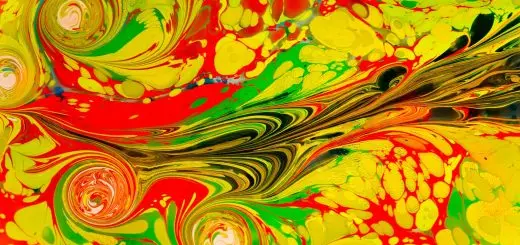Alchemy and the Art of Distillation

Looking for more amazing products? Check out our online store and explore our collection here! Happy shopping!
Before diving in, please note: This post is for informational purposes only. If you’d like to know more about how we approach topics, feel free to check out our friendly Disclaimer Page.
Hey there, amazing readers! 
We’re committed to delivering quality posts, and your support (even just sticking around despite the ads) means everything to us. So, bear with us, and thanks for helping us keep the good vibes rolling. Now, on to the fun stuff!
TRANSLATE BUTTON AT THE END OF THE ARTICLE
Introduction to Alchemy and Distillation
Alchemy is an ancient philosophical and proto-scientific tradition that seeks to explore the nature of reality, the essence of existence, and the transformation of matter.
One of the key practices within alchemy is distillation, a process that involves purifying substances through the application of heat and cooling to extract their essential elements.
Distillation plays a crucial role in alchemical experiments and rituals, allowing practitioners to separate and refine materials to uncover their hidden properties.
The Origins of Alchemy
The origins of alchemy can be traced back to ancient civilizations such as Egypt, Greece, and China.
These early alchemists were interested in transmuting base metals into gold, creating elixirs of immortality, and uncovering the secrets of the universe.
Alchemy flourished during the Middle Ages in Europe, with famous figures like Paracelsus and Isaac Newton contributing to its development.
While alchemy is often associated with mystical practices, it laid the groundwork for modern chemistry and scientific inquiry.
Understanding the Alchemical Process
Alchemy is a multifaceted discipline that combines elements of chemistry, philosophy, and spirituality.
Practitioners of alchemy seek to transform the physical, mental, and spiritual aspects of themselves and the world around them.
The alchemical process involves a series of stages, including calcination, dissolution, separation, conjunction, fermentation, distillation, coagulation, and multiplication.
Each stage represents a different aspect of transformation and purification.
The Role of Distillation in Alchemy
Distillation is a critical aspect of alchemical practice, allowing practitioners to separate and purify substances to reveal their essential nature.
Through the process of distillation, alchemists can extract the purest essence of a material, leaving behind impurities and unwanted elements.
Distillation is used to create tinctures, essences, and elixirs that are believed to have medicinal, spiritual, and transformative properties.
It is a powerful tool in the alchemist’s arsenal for unlocking the hidden potentials of matter.
Tools and Equipment for Distillation
To practice distillation effectively, alchemists rely on a variety of tools and equipment.
Some of the essential items include alembics, retorts, condensers, flasks, and heating sources such as stoves or furnaces.
Alembics are specially designed vessels used for distillation, while retorts are used to contain the substance being distilled.
Condensers help to cool and collect the distilled liquid, while flasks are used for storing the final product.
These tools are essential for conducting distillation experiments with precision and care.
Alchemical Symbols and Their Meanings
Alchemy is rich in symbolism, with each element, stage, and material represented by specific symbols with deep meaning.
Some of the most common alchemical symbols include the sun, moon, mercury, sulfur, salt, and the four elements of earth, air, fire, and water.
These symbols are used to convey complex ideas and concepts in a concise and visual manner.
Understanding the meanings behind alchemical symbols is essential for interpreting alchemical texts, illustrations, and rituals.
Key Principles of Alchemical Distillation
Alchemical distillation is guided by several key principles that underpin the process of purification and transformation.
These principles include the idea of solving, coagulation, sublimation, conjunction, projection, and fermentation.
Solving refers to the breakdown of materials into their constituent parts, while coagulation involves bringing these parts back together in a new form.
Sublimation is the process of raising a substance to a higher state, while conjunction is the union of opposites.
Projection is the final stage where the purified substance is recombined with its essence.
Famous Alchemists and Their Contributions
Throughout history, there have been many famous alchemists who have made significant contributions to the field.
One of the most famous alchemists is Hermes Trismegistus, the legendary author of the Hermetic texts.
Paracelsus, known as the father of modern pharmacology, introduced the concept of chemical medicine and made important discoveries in the field of alchemy.
Isaac Newton, famous for his laws of motion and universal gravitation, was also a practicing alchemist who sought to uncover the secrets of nature through his experiments.
Applications of Distillation in Modern Science
While alchemy has largely been replaced by modern chemistry, the process of distillation is still widely used in various scientific fields.
Distillation is a key technique in the production of alcoholic beverages, essential oils, perfumes, and pharmaceuticals.
It is also used in the purification of water, the extraction of chemicals from natural sources, and the separation of mixtures.
Distillation continues to play a vital role in scientific research and industrial processes, demonstrating the enduring legacy of alchemical practices.
Alchemy and the Search for the Philosopher’s Stone
One of the most enduring legends in alchemy is the search for the Philosopher’s Stone, a mythical substance believed to have the power to transform base metals into gold and grant immortality.
The quest for the Philosopher’s Stone symbolizes the alchemist’s journey of self-discovery, enlightenment, and spiritual transformation.
While the Philosopher’s Stone may be a metaphor for inner wisdom and enlightenment rather than a physical object, it remains a central motif in alchemical symbolism and philosophy.
The Spiritual Dimension of Alchemy
Alchemy is not merely a physical or chemical process but also a spiritual journey of personal growth and transformation.
Alchemists seek to transmute their inner selves, purifying their thoughts, emotions, and intentions to achieve spiritual enlightenment.
The alchemical process mirrors the stages of personal development, from dissolution of the ego to the union of the self with the divine.
Through the practice of alchemy, individuals can explore the depths of their souls, overcome obstacles, and achieve a higher state of consciousness.
Practical Tips for Beginners in Alchemy and Distillation
For those interested in exploring alchemy and distillation, here are some practical tips to get started on your journey:
Study the history and philosophy of alchemy to gain a deeper understanding of its principles and practices.
Familiarize yourself with the symbols and terminology used in alchemical texts and illustrations.
Start with simple distillation experiments using basic equipment and common household materials.
Practice patience and attention to detail, as distillation requires precision and care.
Keep a journal to record your observations, results, and reflections on your alchemical experiments.
Connect with other alchemists and practitioners to share knowledge, insights, and experiences.
Experiment with different materials, substances, and techniques to explore the diversity of alchemical practices.
Embrace the spiritual aspects of alchemy and approach the practice with an open mind and heart.
Be mindful of safety precautions when working with chemicals, heat sources, and glassware during distillation.
Remember that alchemy is a journey of self-discovery and transformation, so approach it with curiosity, humility, and a willingness to learn.
Conclusion
In conclusion, alchemy and the art of distillation have a rich history and profound significance in the realms of science, philosophy, and spirituality.
Distillation, as a key practice in alchemy, allows practitioners to purify substances, extract essences, and unlock hidden potentials.
By understanding the origins, principles, and applications of alchemy, individuals can embark on a journey of self-discovery, transformation, and enlightenment.
Whether exploring the mysteries of the Philosopher’s Stone or conducting distillation experiments, alchemy offers a gateway to deeper understanding and personal growth.
Through the practice of alchemy and distillation, one can uncover the secrets of the universe and the self, leading to a profound sense of interconnectedness and wholeness.

The Enlightenment Journey is a remarkable collection of writings authored by a distinguished group of experts in the fields of spirituality, new age, and esoteric knowledge.
This anthology features a diverse assembly of well-experienced authors who bring their profound insights and credible perspectives to the forefront.
Each contributor possesses a wealth of knowledge and wisdom, making them authorities in their respective domains.
Together, they offer readers a transformative journey into the realms of spiritual growth, self-discovery, and esoteric enlightenment.
The Enlightenment Journey is a testament to the collective expertise of these luminaries, providing readers with a rich tapestry of ideas and information to illuminate their spiritual path.
Our Diverse Expertise
While our primary focus is on spirituality and esotericism, we are equally passionate about exploring a wide range of other topics and niches 

To ensure we provide the most accurate and valuable insights, we collaborate with trusted experts in their respective domains 
Our blog originally focused on spirituality and metaphysics, but we’ve since expanded to cover a wide range of niches. Don’t worry—we continue to publish a lot of articles on spirituality! Frequently visit our blog to explore our diverse content and stay tuned for more insightful reads.
Hey there, amazing reader! 
Check out our store here and take a peek at some of our featured products below! Thanks for being awesome!











